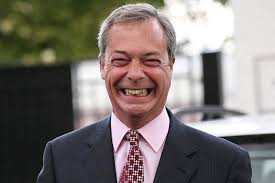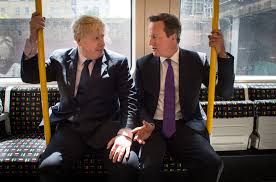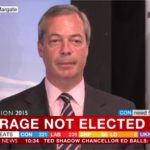Are you ‘in’ or ‘out’? – Tom Heley on the EU Referendum
In the coming months leading up to the referendum on EU membership on the 23rd June, every person who has a social media account and an opinion will suddenly turn into a political commentator; as is the case when there is any type of major political event. So in an effort to balance the argument and provide an insight into, in my opinion, the less well known side of it, I will be providing some information as to why we should leave the European Union. This article is not trying to persuade you to leave but merely giving some information regarding a question that you will be asked repeatedly in the coming weeks: are you in, or out?
The European Union (EU) is a politico-economic union of 28 member states that is located primarily in Europe. It covers an area of 4,324,782 km2, with an estimated population of over 508 million. Its institutions are: The European Council, The Council of the European Union, The European Parliament, The European Commission, The Court of Justice of the European Union, The European Central Bank, and The Court of Auditors. None of these organisations are elected except the European Parliament.
Being in the EU purportedly

grants us a whole host of benefits including free trade, protection and advice from experts who have been doing their jobs, at the top of the EU, for decades. The EU proponents add that it’s not just the tangible material benefits of being in such an organisation that gives us an advantage, it’s the standing with other nations and granting each other mutual protection against the threats of the modern world. But as an island nation do we need such an organisation to protect us? Why don’t we just huddle up with a pint, pull up the drawbridge and wait for this all to blow over? Terror spans borders and is a very real threat: perhaps this is a reason to stay together. As Margaret Thatcher would have said “No, no, no” – (or was that Dawn Penn?). Our security stems not from the EU but from NATO (North Atlantic Treaty Organisation), the most successful political military alliance in history. NATO is just one body that the UK is part of that guarantees mutual defence against an outside attack. This proves there are other bodies that can provide the same protection as the EU, without the disadvantages that being in the EU entails. The IMF (International Monetary Fund), the world bank, G7, G20 and a permanent place on the United nations security council.

The UK, along with Germany, are the only two countries that put in more than they get out. This wouldn’t be an issue if all 28 member states stood together and carried out the function that the EU was originally set up to do. However, it has turned away from being an honest body that wanted to defend world freedom, provide trade benefits and give fairer employment opportunities to member states; into a body of nations that just want to exploit the system for their own nation’s benefit. In 2015 the UK government paid £13 billion to the EU budget, while the EU spending on the UK was £4.5 billion. So the UK’s ‘net contribution’ was estimated at about £8.5 billion. We could continue doing this if we stay in the EU and we could continue contributing the tax payer’s money to pay for bureaucratic excesses such as the ludicrous annual move to Strasbourg – a 60-day sojourn away from Brussels, done to mollify French pride. In the world we live in today, where attacks on nations and falling prices, in essentials like oil and petroleum, are rocking the economic foundations of the world, it is essential that we control our own borders, our own prices and our own laws. This we can do, but not if we are a member of the EU.















3 comments